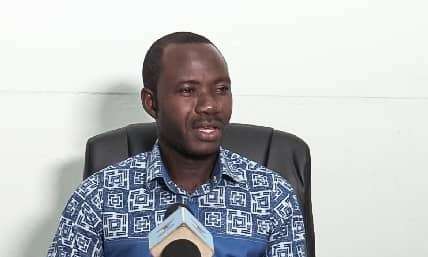Dr. Adu Owusu Sarkodie has stated that there is no substitute for domestic resource mobilization in solving Ghana’s fiscal challenges because even if the country had the chance to borrow to undertake its developmental projects, it would still need to borrow to pay back these loans.
According to the him, the country’s debt is making development impossible since the government is not able to raise enough resources to finance its projects but spends a chunk of its revenues to pay off loans and interest on them. He explained that this has slowed down the government’s ability to implement its programmes and policies to grow and transform the economy and create jobs.
“Ghana finds itself in difficult position. The only way out is to raise enough revenue to finance its development. Even if the government succeeded in borrowing, it would still have to raise revenue domestically to service the debt. Therefore, there is no substitute for domestic resource mobilization. The projected budget deficit for 2022 is $6 billion. The government will have to raise revenue through taxes (without overburdening the taxpayers) and non-tax sources”.
Dr. Adu Owusu Sarkodie
Detailing the specific steps needed to improve domestic revenues, the Lecturer at the Department of Economics, University of Ghana, cited a study conducted by the Institute for Fiscal Studies (IFS) in 2018 that made some recommendations as the possible additional revenue to Ghana’s public finance annually.

According to the IFS, government can raise $47 million from Personal income tax of the workers in the informal sector annually. In addition, Property tax can raise $157 million, Tax exemptions ($790 million) and a 55% share of the extractive sector can bring in $4 billion to the government’s coffers every year.
Huge informal sector
According to the Ghana Statistical Service, there are about 7.7 million workers in the informal sector but it is difficult to measure their incomes. To this end, Dr. Adu Owusu Sarkodie indicated that this is why there seems to be a good economic justification to tax the informal sector using the proposed E-levy. But the levy, according to him, must be designed to achieve the objective of taxing the incomes of workers in the informal sector.
Still on the solutions to the country’s revenue woes, Dr. Sarkodie noted that the government must also plug all loopholes, and ensure prudent management of public finance.
According to him, the Auditor-General’s department and Public Accounts Committee of Parliament usually identify financial irregularities in their reports. He stated that the recent Auditor-General’s report identified about $1.8 billion worth of irregularities in public finance. The Economist contended that when these irregularities are checked, the government will gain the confidence and support of the citizens.

“If the current growth in the public debt stock continues, then the country is likely to find itself in debt distress, which might lead to seeking an International Monetary Fund bailout”.
Dr. Adu Owusu Sarkodie
Genesis of Ghana’s recent debt challenges
After the Heavily Indebted Poor Countries initiative (HIPC) ended in 2006, the public debt stock has largely been driven by the continuous accumulation of budget deficits (48.6%), the currency depreciation (28.2%), and off-budget borrowings (23.2%). However, Dr. Adu Owusu Sarkodie underscored that between 2017 and 2019, Ghana’s debt stock grew astronomically for three main reasons, beyond the normal drivers: energy sector debt, financial sector clean-up exercise, and the COVID-19.
Dr. Adu Owusu Sarkodie emphasized that the current rigidity in the Ghanaian budget – statutory payments in the budget over which the government has no control – makes it impossible for the government to do anything without borrowing. Just two of the statutory payments (compensation of employees and debt service) consume the total revenue and grants, he lamented.
He explained that in 2020, debt service alone (paying interest plus amortization) consumed 70% of revenue which is close to the level of 72% before the country subscribed to the Heavily Indebted Poor Countries initiative. Based on the estimated revenue and expenditure figures in the 2021 and 2022 budgets, the debt service burden is expected to worsen in 2021 at 82%, before improving at 45% in 2022, he estimated.
“For the government to be able to meet the remaining statutory expenditure and all other discretionary expenditures, it will have to borrow. If the government does not instill discipline and raise revenue domestically, or cut down some expenditure (or both) to create fiscal space, it will have to seek help in an International Monetary Fund programme”.
Dr. Adu Owusu Sarkodie
Recently, some international credit rating agencies downgraded Ghana’s economy, citing the country’s inability to raise enough revenue to service its debt. The signal this sends to investors is that Ghana’s sovereign bond is not profitable and its default risk is too high.
The implication of this is that the government may not be able to raise money from the international capital market. The options are to either borrow domestically and crowd out the private sector, or borrow from other countries. If this option is exhausted, “it will have to seek an International Monetary Fund programme”, he iterated.
READ ALSO: FIFA Revises Date For Ghana Vs Nigeria World Cup Playoff



















